Interview: Mike Patrick shares the keys to success
From being ‘that student’ who always played piano in school assemblies, to an adult life tinkling the ivories for some of music’s biggest stars – including Jake Bugg, James Arthur and recently, The Streets – Mike Patrick’s musical life has been something of a rollercoaster, driven by a deep love of music
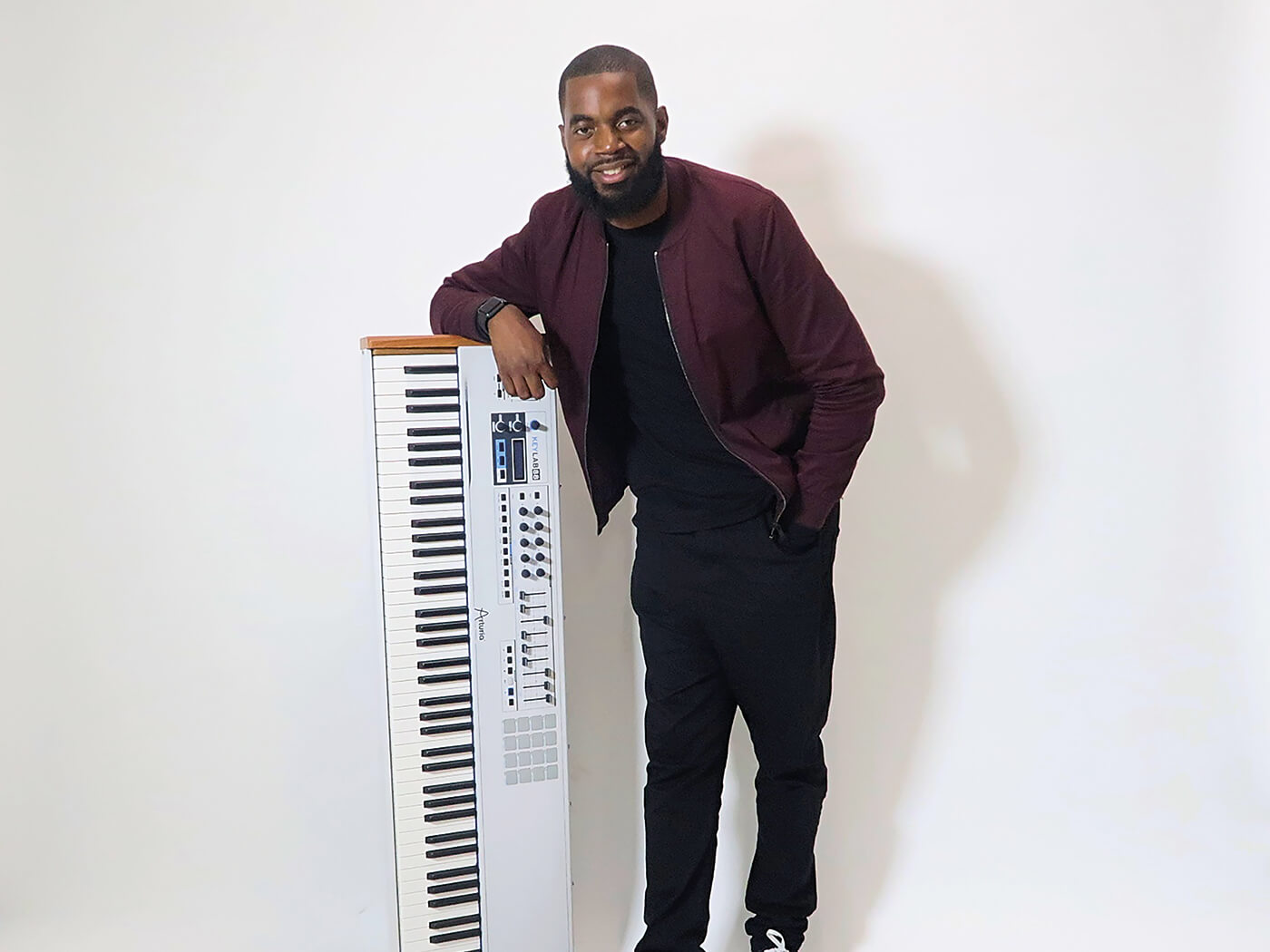
There’s a lot of mind games with music – the path isn’t mapped out for you, it’s not the nine-to-five and there are no certainties,” Mike Patrick tells us, fresh from a live stint with The Streets that is set to extend throughout 2019 and beyond.
Having solidified his position as Mike Skinner’s keyboardist, Mike reflects back on his early life, and how his journey to this place began. “It was really interesting actually, my dad used to play keyboards when I was little, which was more of a hobby really, than anything professional. I remember being a kid and he bought an electric Bontempi Hammond. I just used to always play on it – from as long as I can remember.”
Through playing with this simple keyboard, Mike started to develop a real talent, which would come to fruition at church. “A lot of musicians that I know started in church and I guess that played a big role for me, too,” Mike says.
“I started playing for the school choir. That’s where it started. Before long, I ended up being that kid at school who played everybody into assembly. Piano was just something I picked up naturally. I felt sometimes that it was more of a gift than anything, because I never had lessons, it was more a thing of being around music. In church, you had like 30 seconds to pick up a song. When you don’t know what you’re doing, you still kind of had to play anyway!”
As school came to an end, Mike’s love for piano began to become a central passion in his life. “After school, I said to my mum and dad that I wanted to study music more. My dad expressed that he ‘couldn’t see how music’s going to put food on the table’, so instead, I studied Graphic Design at college, which was quite interesting and still sometimes useful to me. I finished that though, and still felt the drive to do music.”
In the end, Mike headed to Middlesex University and started doing a Classical BA in music. “The problem was I couldn’t read music,” Mike recalls. “I was an instinctual player really, so I jumped into theory and bought a bunch of books before the course and started getting my head around it. So by the time the course started, I wasn’t too bad – but I always dreaded reading.”
The big smoke
Though he learned a significant amount from the course, Mike’s career success really developed in a more organic way than through academia. “I really didn’t like the course, and I left after a year. So I started living in London and playing in different outfits and at different music events. One of my mates’ friend’s bands had a keyboard player who got into an accident. They asked me if I could play quite last minute and I’d seen a fair few of their shows and knew their songs, so jumped on and ended up playing as cover, basically. This lead to them saying: ‘You’re pretty decent’. It was a lucky opportunity that was a bit of a springboard to other things.”
Mike got to know musicians in London, and ended up getting regular work playing keys in different sessions. “Slowly, over time, more people would speak to me and offer me work. A friend of mine came up to me and said: ‘I’m organising a tour, and you’d be really good for it. The way you play would suit this artist’s music.’ I was free to do it, so was enthusiastic. He said: ‘If you can survive this tour, you can survive anything.’ It turned out it was a stint playing keys for Dappy [of N-Dubz fame]. So that was the first tour I did.”
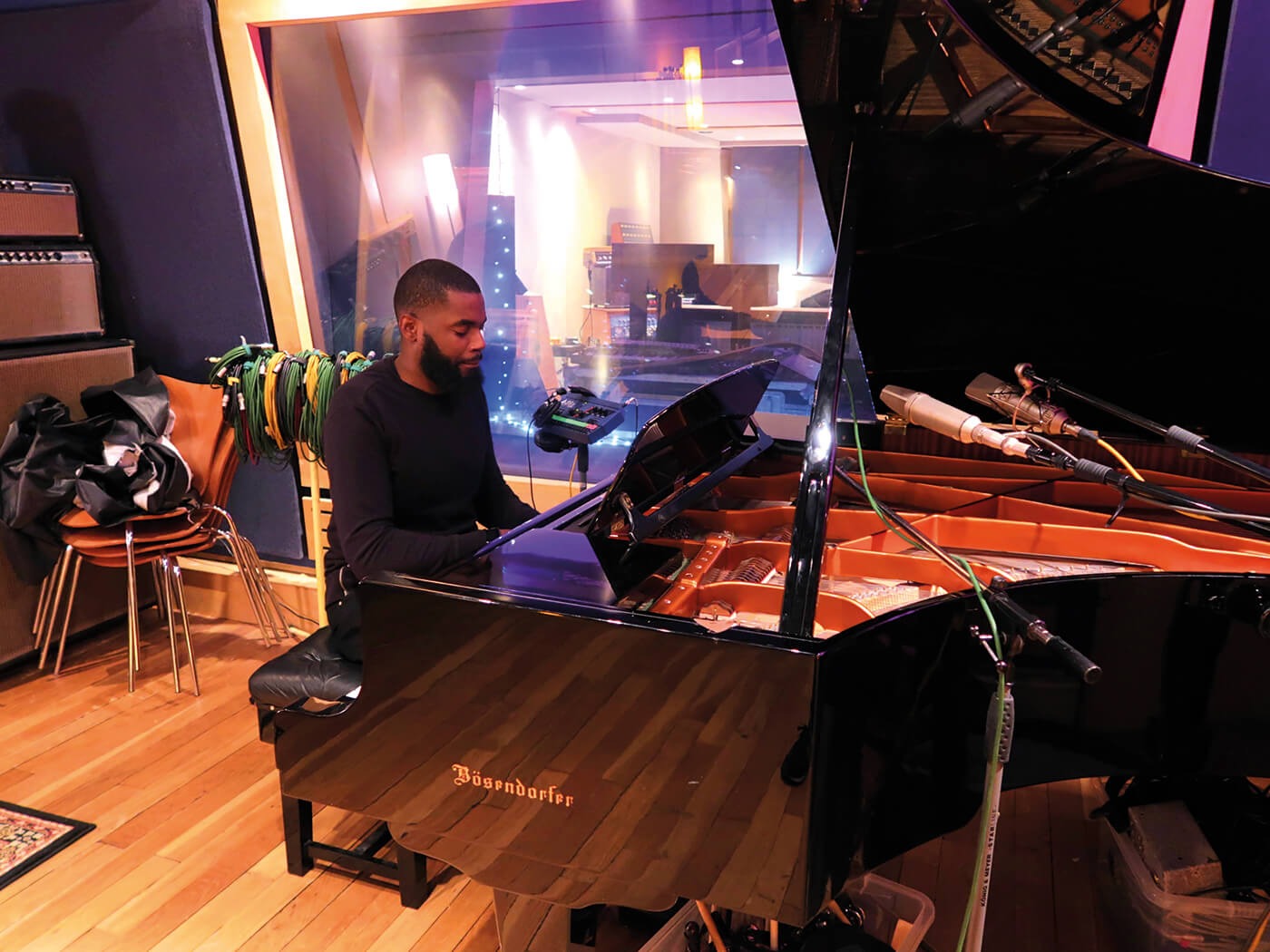
Mike was suddenly playing with a high-profile performer, though his feelings on this initial experience are mixed. “It was really interesting, really in various different ways, though it was my first taste of touring with a named artist so it was a real eye-opener for me.”
From there, Mike’s dexterous musicianship got him noticed and he fell into a regular series of gigs working alongside high-profile pop artists such as Blue, Morcheeba, Jocelyn Brown and – perhaps most notably – a young lad from Nottingham…
The Bugg bites
Mike’s professional life would be hit by a jolt of lightning with another call, from someone who was handily keeping an ear out for any work that might suit Mike. “I got called by a friend and asked if I’d heard of Jake Bugg,” Mike recalls.
“I hadn’t at that point, but I was told that he was looking for a keys player and that I should do my research. I was told it would be like nothing I’d ever done so far. I recognised his music straight away.”
Mike got in touch with his management. “They sent me a video of a show Jake did at the Royal Albert Hall and I was told to get a feel for how Jake performs. I was so serious about it that I ripped the audio from the video and went to bed listening to it on my headphones. I really liked his style and his vocals were punchy.”
Next was to look at the proposed tour dates. “They were insane! it was like 18 months straight and all over the place.” But Jake very quickly endeared himself to Mike: “One of the first things I realised about Jake after meeting him was that there’s literally nothing he can’t play.
“We’ll be on the tour bus and he�’ll start playing reggae on guitar, then he’ll play some funk or classical. He knows a lot of different styles of music. He’d know a rare old-school reggae song that my parents used to listen to, for example – I was amazed, I wondered how this kid from Nottingham knew these songs. He’s a really great, knowledgeable musician.”
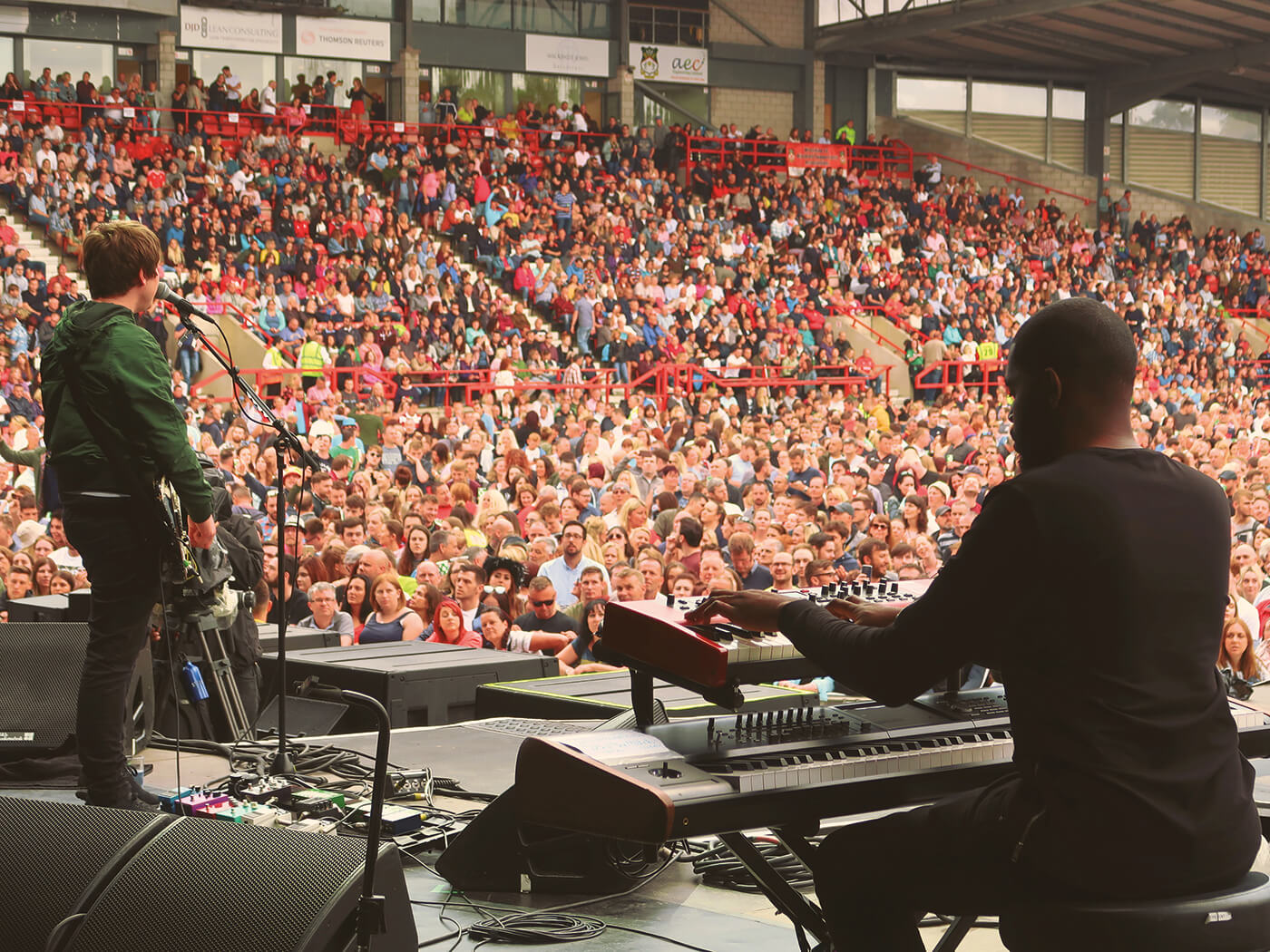
Back to that initial audition: “I remember him being very blank – you can’t read Jake at all. I remember him saying: ‘Okay, let’s try Trouble Town,’ and then launching into it, which I played my very best after having learned the song previously. Then afterwards, he gave nothing away about what he thought. At the end, he said: ‘We’ve got another guitarist coming down, do you mind staying on keys while we listen to him play?’ So we did the same thing with him. At the end of that, he said: ‘Mike, I’m going to be showing my band some of my new album stuff, do you want to stay and just jam?’ Afterwards, we hung out for a while and he was just really cool. I got the job. Fast-forward to now and I’ve been playing with Jake for over three years. He’s a good friend and a constantly interesting character.”
Keymaster
Diverting from Mike’s career path for a minute, we ask him what actual keyboards and tech does he prize? “Well, originally, I was a Yamaha guy, I grew up on Yamaha. When I was young I couldn’t really afford a ‘rig’, so to speak. I used to use Yamaha Motif racks. It’d be useful for when I was playing at various different churches. That way, I could have my own sounds and stuff like that. After the Motif rack, Nord released a rack module called the Nord Electro 2 and I loved it. Stuff like putting a rotary effect on a Rhodes and the out-of-this-world organ sound was superb.
“I’ve always been more of a hardware person,” Mike continues. “I’ve tried software at gigs but generally, I find it too temperamental. After the Motif and Electro 2, I jumped over to Korg and got myself a Kronos. The fluidity of sound-switching was what was appealing about that. I also started getting more interested in Nord’s larger pianos. I’d noticed their sound had got surprisingly better than they’d ever been before. In pop music, you always need a good piano sound.”
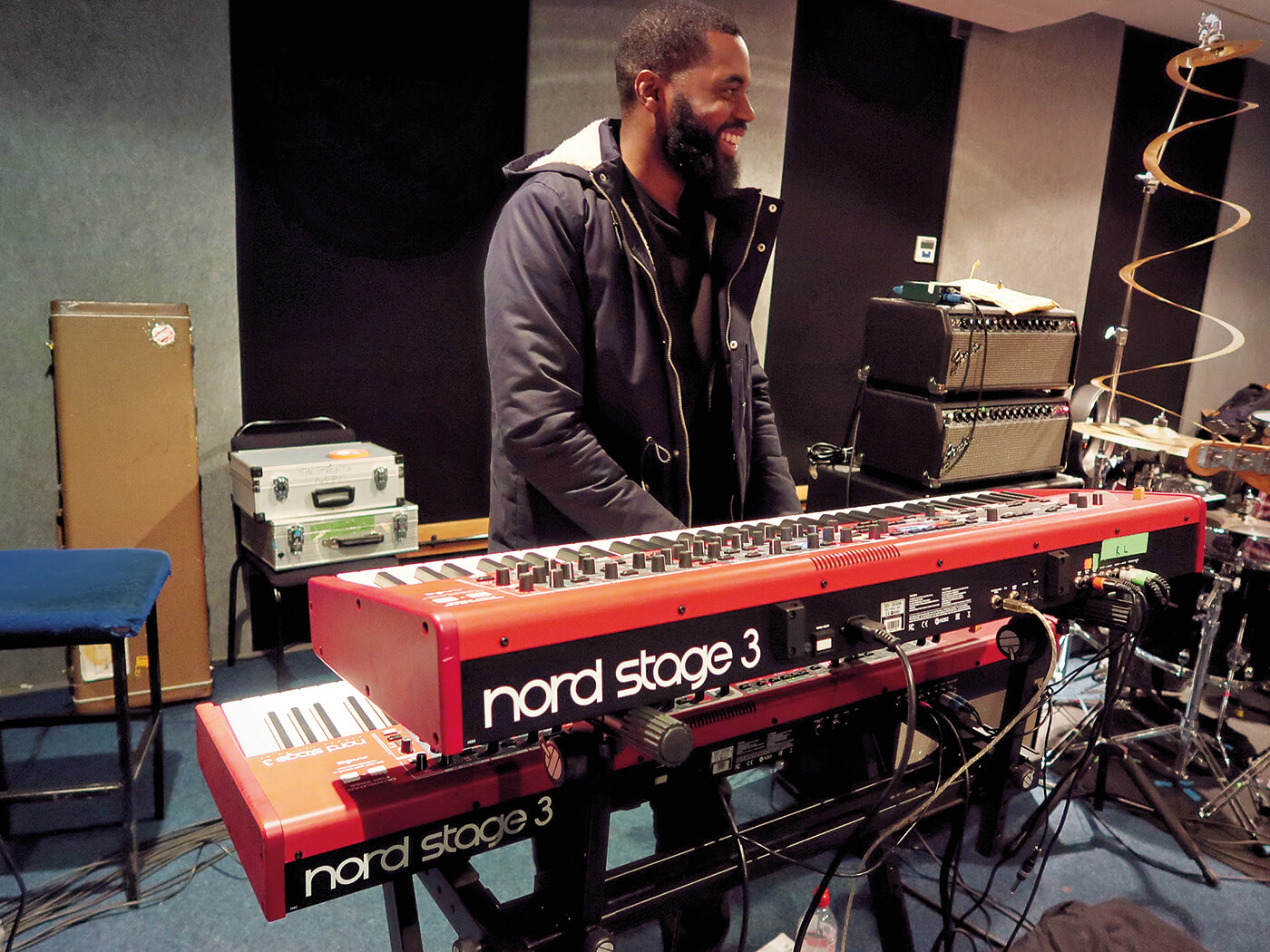
Mike then purchased a Nord Electro 4D. “It was quite a small thing, really, but I learned how to make mine sound unique compared to everybody else’s. When the Nord Stage 3 came out, I bought myself one of those. It’s awesome and so powerful in terms of what you can layer, what you can split and that sort of thing.”
He admits though, that: “In terms of sound, it’s a Nord that I’ll always go for. You can’t rival their piano sounds at all. That’s why you see so many of them everywhere. Their upright piano sounds are unrivalled. I’m willing to try different things, but Nord just works for me.” Mike later upgraded from the 4D to a Nord Electro 5D.
In terms of the few software tools Mike does use, there’s one primary product that he swears by: “Spectrasonics’ Keyscape! when I heard that for the first time, I thought, ‘This is crazy’. I actually was using it a few weeks ago and a friend I was working with heard the upright piano sound from Keyscape and thought it was a legit, real piano. I got the opportunity to do a session with a new artist. I went to this studio with my trusty Nord piano, but I ended up using Keyscape and I could tell that she really liked the sound of it, and at the end of the day, that’s what’s important.”
When it comes to DAWs, which Mike uses for making demos and recording with artists, he trusts what he knows.
“I use Logic mainly, I go into Pro Tools occasionally, but mainly my work will be done in Logic. I’ve only just moved from Logic 9 over to X – reluctantly! Ableton Live is coming up very quickly, though, as a new standard it seems – loads of my friends use it. I’m trying to get myself on a course to study it more. We ran the whole Streets show on Ableton Live on two laptops. It’s really amazing and I sort of feel like I’ll get a bit left behind if I don’t learn to use it properly.”
The sound of the streets
Speaking of The Streets, the highly acclaimed and recently reformed vehicle for Birmingham-born rapper and lyricist Mike Skinner, we ask how Mike became involved as Skinner’s keys player?
“It was spring of last year, a mate of mine plays drums with Mike and had been for quite some time. The beginning of the year was a bit daunting, as I had no idea what jobs I’d be doing throughout the year. But my mate called me and said: ‘Don’t say anything, but Mike is going to tour again. And he’s looking for a keys player.’ He couldn’t promise that he would choose me, but he recommended that I send a video of myself through to him playing some stuff.”
Patrick was really really excited, having grown up listening to The Streets’ seminal first records, including Original Pirate Material and A Grand Don’t Come For Free. “It was important to me that I got the job. I had nothing planned and I had a few calls to do other bits and pieces, but it clashed with (potentially) working with Mike, so I declined everything. I gambled on it, really. In the end, Mike didn’t even watch the video, but he heard the sound of me playing on it. I got an email saying: ��‘Mike’s happy for you to play.’ I then went through the process of learning all the stuff.
“It’s a little-known fact that Mike Skinner plays keys as well,” Mike reveals. “I was told that he may want to show me certain arrangements or voicings. I remember going into rehearsals and we started working on Has It Come To This? from The Streets’ first record, it’s actually my favourite song of his, too. Things were still in the process of being put together gear-wise and sound-wise at that point. Mike hadn’t done a show in seven years, so he was there on day one… I think he was a bit anxious to hear what the sound was like.
I was the only new guy and there’s a lot of pressure on the keyboards. The rest of the band had toured with him before, so it was nerve-wracking for me.
“I could tell that Mike wanted to make sure I could play, he wanted to make sure he could rely on me and not be stressed out. We had five weeks of rehearsals, so plenty of time to get everything together. I wasn’t too sure of the voicing that I was using on Has It Come To This? – I wasn’t sure if it was right.
“I played it to Mike and he said: ‘Ah, it’s a good effort, but it’s not exactly right.’ There was an extra chord in there. Mike can play, but he doesn’t do theory. So he gave me homework to get it right.”
The two Mikes convened in rehearsal again the next day. “I told him: ‘I think I’ve got it,’ and I played the riff again and he said: ‘That’s better, but there’s still something missing.’ He came round and he was trying to figure it out as well. He then said he would send the original stem of that piano part.
“So I went home and listened to it. So finally, I came in, played it to him and he said: ‘That’s it!’ Mike is a lot of fun to work with, he really appreciates his band.”
It’s clear that Mike Patrick is in a pretty content place, having landed his dream role as a vital component of The Streets’ sound. “The touring has been great and we’ve got some more shows in January, February 2019, there’s likely to be more later in the year, too.” But is there anyone else out there who Mike would love to work with? “I’d love to work with Eric Clapton,” he says. “I just think he’s awesome and he’s still touring. I’m an 80s baby, I appreciate music that we have, but some of that older stuff is timeless. So Eric, if you read this, give me a call!”
Express yourself
Aside from his current career, providing keys and sounds for others, we ask Mike whether he’s ever felt the need to write and perform his own music?
“I’m actually in the process of moving more into songwriting,” he says. “I’m a big string fan and I’m considering maybe writing a small EP of just film-music ideas. That’s something I want to do just for me. I’m also doing a lot more writing with the different artists I work with. I suppose as a musician, though, everyone has that sound that they want to release at some point in their life. It’s just finding the time to do it, really. I’m quite busy with touring over the next few months.”
Mike pauses for a moment, before revealing: “To be completely honest, fear of not doing well prevents me from doing it, but if I had my own way, I would literally just write my own piano stuff and just be an artist. But it’s a plunge into the unknown, career-wise. I suppose that’s just a life lesson. I feel like sometimes my role is to help somebody else’s dream. So I often think I should branch out. But I’m just cautious of making that leap. Time will tell.”
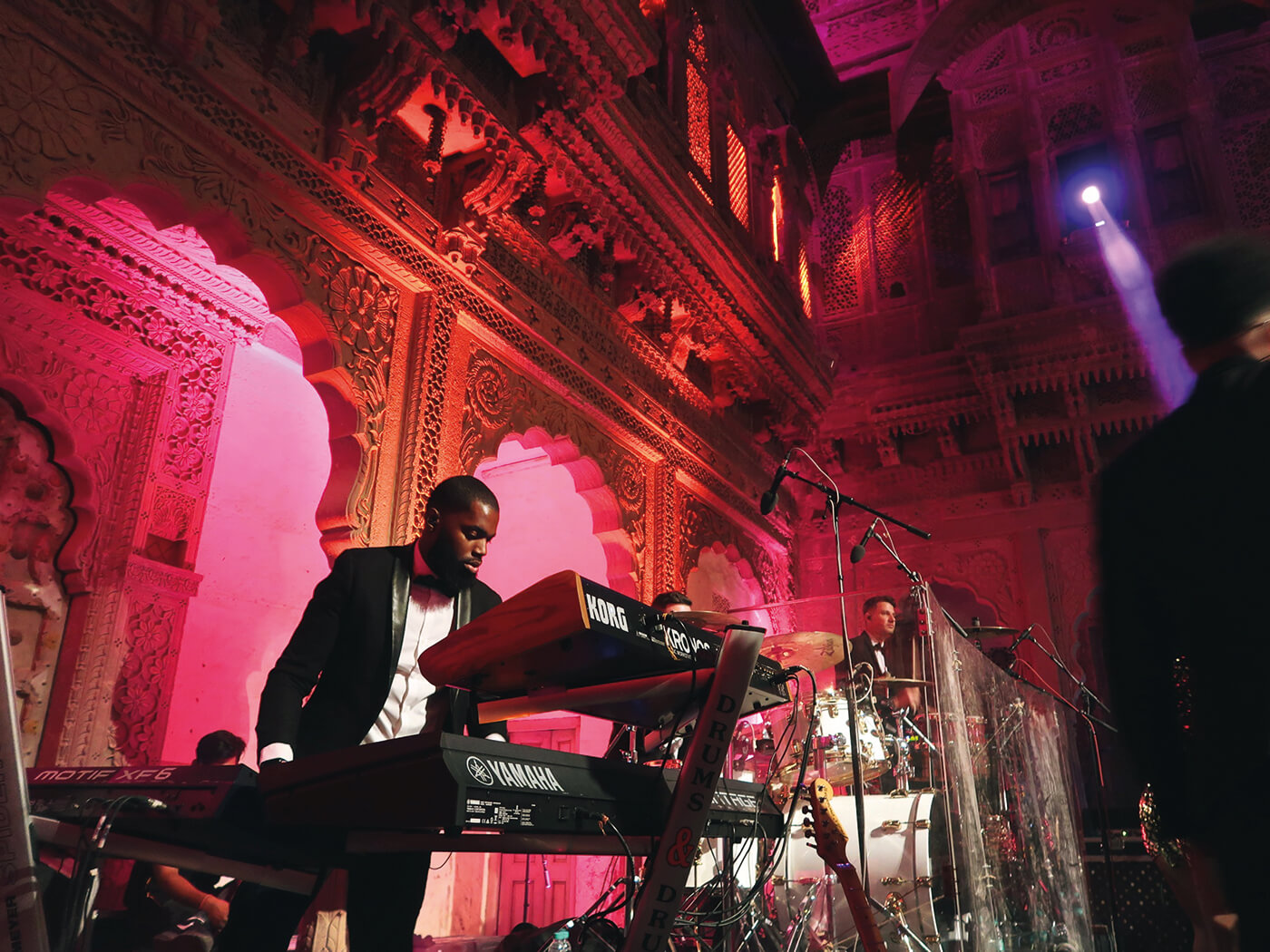
So what is Mike’s golden advice for those looking to follow in a similar career path? “I’d say: ‘Trust the process’ – that’s the biggest one,” Mike says. “One minute you’re going to be up and the next you’re going to be down. It’s a real rollercoaster. I would say that really, it’s humility that goes such a long way. I’ve noticed along the way that you can be the most amazing musician, but if people can’t stand you, there’s no point. Your character gets you everywhere. I’d say trust the process, be humble and work hard.”
What’s the score?
Mike is also an accomplished orchestrator, having learned more theory in the time since his stint at Middlesex University.
“I still have theory knowledge, so I can add orchestration and strings to different artists’ arrangements. What’s happening now increasingly, even though I’m not the musical director as such, is that I’m arranging music for strings for live sessions, etc. The lines are getting blurred. The time I’ve spent in London, meeting more people and learning more about music has allowed me to expand into different areas and develop my skills more and more. I’ve got to write for strings and also get singers who sing alto or soprano.
“What I’m trying to do is to use my skills to add more value to myself. What I normally do is, I will play in a rough arrangement of strings, and then present the demo to the artist. I’d then take notes from their feedback and then score it from there. So it’s a real collaborative process. It’s kind of cool to get to hear your work come to life.”